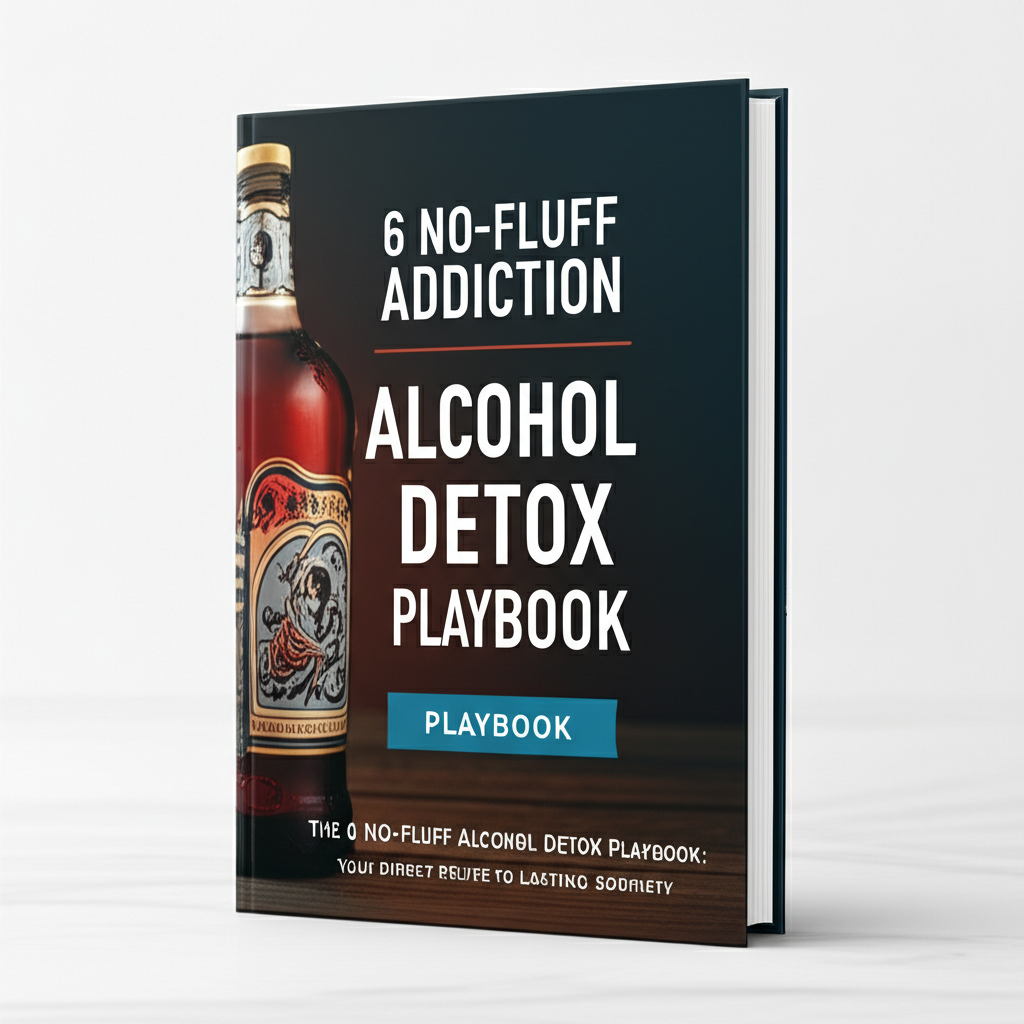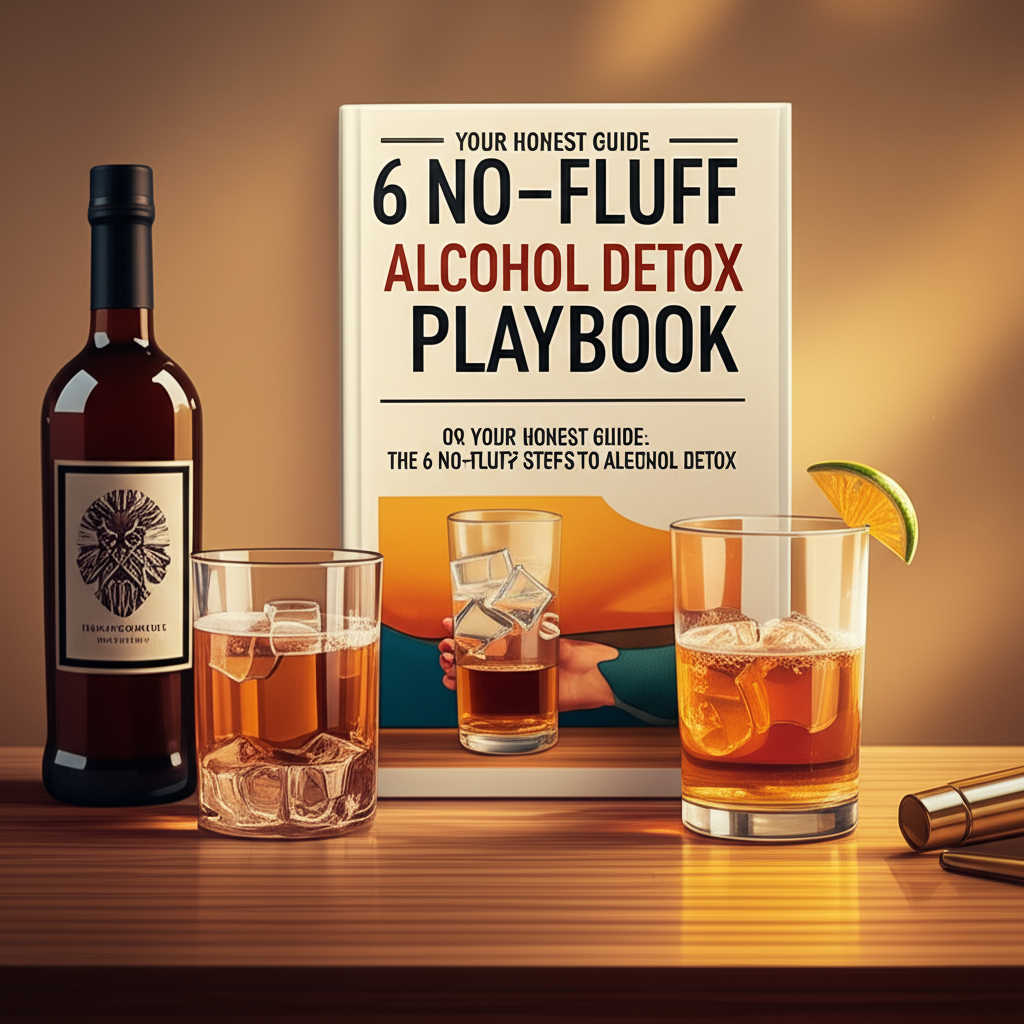This isn’t a journey to embark on lightly or alone. Attempting to detox from alcohol without proper guidance can lead to severe health complications, even death. That’s why we’ve developed the "3 Ultimate Addiction Alcohol Detox Playbook" – a comprehensive, structured guide designed to empower you with knowledge, prepare you for the journey, and lay the groundwork for a successful, sober life. This playbook outlines three essential pillars for safe, effective, and sustainable recovery, emphasizing that while detox is the crucial first step, it’s just the beginning of a lifelong commitment to well-being.
Understanding the Beast: Why Alcohol Detox Demands Respect
Before diving into the playbook, it’s crucial to understand why alcohol withdrawal is so serious and why a structured approach is not just recommended, but often life-saving. Alcohol is a central nervous system depressant. Chronic heavy drinking forces the brain to adapt by becoming overactive to counteract the constant depressive effect. When alcohol is suddenly removed, the brain remains in this hyperactive state, leading to a cascade of potentially severe withdrawal symptoms.
The Dangers of "Cold Turkey" Detox
Attempting to quit alcohol suddenly without medical supervision, often referred to as "cold turkey," can be incredibly dangerous. The body’s sudden shock can manifest in various ways, from uncomfortable to life-threatening:
- Seizures: One of the most dangerous complications, alcohol withdrawal seizures can occur 6-48 hours after the last drink. These can lead to serious injury or even brain damage.
- Delirium Tremens (DTs): A severe form of alcohol withdrawal, DTs can manifest 48-96 hours after the last drink. Symptoms include severe confusion, disorientation, hallucinations (visual, auditory, tactile), rapid heart rate, high blood pressure, and fever. DTs are a medical emergency and can be fatal without immediate treatment.
- Severe Dehydration and Electrolyte Imbalances: Vomiting and sweating can lead to critical fluid and electrolyte loss, impacting heart function and overall health.
- Cardiovascular Complications: Irregular heartbeats, high blood pressure, and increased risk of heart attack or stroke can occur during severe withdrawal.
- Psychological Distress: Extreme anxiety, panic attacks, severe depression, and suicidal ideation are common and can be overwhelming.
These risks underscore the absolute necessity of a well-planned, professionally guided detoxification process.
Playbook 1: The Non-Negotiable – Medically Supervised Detoxification
The cornerstone of any successful alcohol detox is professional medical oversight. This is not merely a recommendation; it is often a critical safety measure that can prevent severe complications and provide the most comfortable and effective start to recovery.
Why Professional Medical Oversight is Paramount
Medical detox ensures that withdrawal symptoms are managed safely and effectively, minimizing discomfort and preventing dangerous health crises. Here’s why it’s non-negotiable:
- Prevents Life-Threatening Complications: Medical staff are equipped to monitor vital signs, anticipate potential seizures or DTs, and intervene immediately with appropriate medication.
- Manages Pain and Discomfort: Medications can significantly alleviate the physical and psychological distress of withdrawal, making the process more tolerable and reducing the likelihood of relapse during this vulnerable stage.
- Provides a Safe, Controlled Environment: A medical detox facility removes access to alcohol and provides a structured environment free from external triggers and stressors that could jeopardize sobriety.
- Comprehensive Assessment: Medical professionals conduct a thorough evaluation of your physical and mental health, identifying any co-occurring conditions that need to be addressed during recovery.
What to Expect During Medical Detox
A typical medical detox experience involves several key components:
- Initial Assessment: Upon admission, a team of doctors, nurses, and addiction specialists will conduct a comprehensive evaluation. This includes:
- Detailed medical history (including past substance use, mental health conditions, and current medications).
- Physical examination and blood tests to assess overall health and identify any existing complications.
- Assessment of the severity of alcohol dependence to determine the appropriate level of care and medication dosage.
- Medication Management: The primary goal during detox is to stabilize the patient and prevent severe withdrawal symptoms. Medications commonly used include:
- Benzodiazepines (e.g., Librium, Valium, Ativan): These are the gold standard for alcohol withdrawal. They act on the same brain receptors as alcohol, helping to calm the overactive nervous system, reduce anxiety, prevent seizures, and manage DTs.
- Anti-nausea medications: To alleviate vomiting and nausea.
- Sleep aids: To help manage insomnia.
- Vitamin supplements: Particularly B vitamins (thiamine), which are often deficient in individuals with chronic alcohol use and are crucial for preventing neurological damage.
- Constant Monitoring: Throughout the detox process, medical staff will continuously monitor your vital signs (heart rate, blood pressure, temperature, respiration), hydration levels, and psychological state. This allows for immediate adjustments to medication and intervention if any complications arise.
- Supportive Care: Beyond medication, detox includes providing a supportive environment, ensuring adequate nutrition, and offering emotional support to help navigate the intense physical and psychological challenges.
Inpatient vs. Outpatient Detox: Choosing the Right Setting
The decision between inpatient (residential) and outpatient detox depends on several factors, primarily the severity of alcohol dependence and the individual’s support system.
- Inpatient Detox:
- Best for: Individuals with severe alcohol dependence, a history of complicated withdrawals (seizures, DTs), co-occurring mental health disorders, or a lack of stable, supportive home environment.
- Benefits: 24/7 medical supervision, complete removal from triggers, structured environment, immediate access to crisis care, and often the first step in a longer residential treatment program.
- Example: Someone who has been drinking heavily for years and previously experienced seizures during attempts to quit would benefit most from inpatient detox.
- Outpatient Detox:
- Best for: Individuals with mild to moderate alcohol dependence, no history of severe withdrawal complications, a strong and sober support system at home, and the ability to attend daily medical appointments.
- Benefits: Allows individuals to remain at home and continue with work/family obligations (if safe to do so), can be less disruptive, and may be less costly.
- Caution: Outpatient alcohol detox carries higher risks due to less intensive monitoring and the availability of alcohol. It should only be considered under strict medical guidance and for carefully selected candidates.
- Example: A person with a relatively short history of heavy drinking, no prior withdrawal complications, and a supportive spouse who can monitor them might be a candidate for outpatient detox, with daily check-ins at a clinic.
Playbook 2: Healing the Whole Person – Holistic Approaches and Mental Fortitude
Detoxification addresses the physical dependency, but true recovery demands a holistic approach that mends the mind and spirit as well. Alcohol addiction often stems from or exacerbates underlying psychological issues, and addressing these is crucial for long-term sobriety.
Rebuilding the Body: Nutritional and Physical Restoration
Chronic alcohol abuse wreaks havoc on the body, depleting essential nutrients and damaging organs. Post-detox, a focus on physical healing is vital:
- Balanced Nutrition: A diet rich in whole foods, lean proteins, fruits, and vegetables helps repair cellular damage, restore energy levels, and support brain function. Specific focus on B vitamins, magnesium, and zinc can aid recovery.
- Hydration: Water is critical for flushing toxins and rehydrating the body.
- Gentle Exercise: Activities like walking, light stretching, or yoga improve mood, reduce stress, enhance sleep quality, and restore physical strength without putting undue strain on the recovering body.
- Sleep Hygiene: Establishing a regular sleep schedule and creating a conducive sleep environment can help regulate disrupted sleep patterns common in early recovery.
Mending the Mind: Therapy and Emotional Processing
Therapy is indispensable for understanding the roots of addiction, developing coping mechanisms, and processing the emotional landscape of recovery.
- Cognitive Behavioral Therapy (CBT): This highly effective therapy helps individuals identify and challenge negative thought patterns and behaviors that contribute to alcohol use. It teaches practical skills for managing cravings, identifying triggers, and developing healthy coping strategies.
- Dialectical Behavior Therapy (DBT): Often used for individuals struggling with emotional dysregulation, DBT focuses on mindfulness, distress tolerance, emotional regulation, and interpersonal effectiveness. It helps individuals learn to manage intense emotions without resorting to alcohol.
- Individual Therapy: Provides a confidential space to explore personal issues, trauma, grief, or co-occurring mental health conditions (like depression or anxiety) that often fuel addiction.
- Group Therapy: Offers a powerful sense of community and shared experience. Participants learn from each other, practice new social skills, and receive feedback in a supportive environment.
Cultivating Inner Peace: Mindfulness and Stress Reduction
Stress is a significant trigger for relapse. Learning to manage it effectively is a cornerstone of sustained sobriety.
- Mindfulness and Meditation: Practices that involve focusing on the present moment can reduce anxiety, improve emotional regulation, and increase self-awareness, helping individuals observe cravings without acting on them.
- Yoga and Tai Chi: These mind-body practices combine physical movement with breathwork and meditation, promoting relaxation, flexibility, and mental clarity.
- Journaling: A powerful tool for emotional processing, journaling allows individuals to explore thoughts, feelings, and experiences, gaining insight into their addiction and recovery journey.
- Creative Expression: Engaging in art, music, writing, or other creative outlets can provide a healthy way to express emotions and find joy in sobriety.
Playbook 3: Building a Fortress – Sustainable Support and Long-Term Recovery
Detox is the critical first step, but it is not the destination. Long-term sobriety requires building a robust fortress of support systems and aftercare planning to navigate the challenges of life without alcohol.
The Power of Community: Peer Support Groups
Connecting with others who understand the struggles of addiction is immensely powerful. Peer support groups provide empathy, accountability, and practical advice.
- Alcoholics Anonymous (AA): A widely recognized 12-Step program that emphasizes spiritual principles, peer support, and service to others. It offers a structured path to recovery through shared experiences and sponsorship.
- SMART Recovery: (Self-Management And Recovery Training) A science-based, secular alternative that focuses on self-empowerment, self-reliance, and cognitive behavioral therapy (CBT) tools to manage thoughts, feelings, and behaviors.
- Benefits:
- Shared Experience: Reduces feelings of isolation and shame, knowing you’re not alone.
- Accountability: Regular attendance and sponsorship provide a framework for staying committed to sobriety.
- Practical Wisdom: Members share coping strategies, relapse prevention tips, and encouragement.
- Sense of Belonging: Fosters a new social network based on sobriety, replacing old drinking circles.
Crafting a Robust Aftercare Plan: Beyond Detox
A comprehensive aftercare plan is essential for maintaining sobriety and navigating life’s challenges without returning to alcohol. This plan should be developed with therapists and addiction specialists.
- Ongoing Therapy: Continuing individual or group therapy provides sustained support, helps address new challenges, and reinforces coping mechanisms.
- Regular Medical Check-ups: To monitor physical health and address any long-term effects of alcohol abuse.
- Developing Healthy Hobbies and Interests: Replacing alcohol-related activities with fulfilling pursuits that bring joy and purpose (e.g., sports, volunteering, learning new skills).
- Life Skills Training: For individuals who may have neglected responsibilities during active addiction, learning or relearning skills like financial management, job searching, or healthy relationship building can be crucial.
- Relapse Prevention Strategies:
- Identifying Triggers: Knowing what situations, emotions, or people might provoke a craving.
- Developing a Plan B: Having specific strategies to employ when triggers arise (e.g., calling a sponsor, attending a meeting, practicing mindfulness).
- Building a Support Network: Having a list of trusted individuals (family, friends, sponsors, therapists) to contact during difficult moments.
- Emergency Contact Information: Keeping numbers for helplines or crisis services readily available.
- Family Involvement: For many, addiction has impacted family dynamics. Family therapy can help heal relationships, improve communication, and educate loved ones on how to best support the individual in recovery.
The Journey Continues: Embracing a Sober Lifestyle
Recovery from alcohol addiction is not a destination but a continuous journey of growth and self-discovery. Embracing a sober lifestyle means:
- Long-Term Commitment: Understanding that sobriety requires ongoing effort and vigilance, even years into recovery.
- Celebrating Milestones: Acknowledging and celebrating achievements, big and small, reinforces positive behavior and motivates continued effort.
- Continuous Self-Improvement: Using the tools learned in therapy and support groups to evolve as a person, finding new ways to cope, connect, and thrive.
- Finding Purpose: Engaging in activities that bring meaning and contribute to a sense of purpose, whether through work, hobbies, or helping others.
Conclusion: Your Playbook for a Brighter Future
The "3 Ultimate Addiction Alcohol Detox Playbook" provides a clear, actionable roadmap for overcoming alcohol addiction. It begins with the absolute necessity of Medically Supervised Detoxification to ensure safety and comfort during the acute withdrawal phase. This critical first step then transitions into Holistic Healing and Mental Fortitude, addressing the underlying psychological and physical damage of addiction through therapy, nutrition, and mindfulness. Finally, the playbook emphasizes Sustainable Support Systems and Long-Term Recovery, building a strong foundation with peer groups, robust aftercare planning, and a commitment to a fulfilling sober lifestyle.
Embarking on this journey requires immense courage, but you don’t have to walk it alone. Professionals are ready to guide you, and communities are waiting to embrace you. If you or someone you love is struggling with alcohol addiction, remember that help is available, and a life free from the grip of alcohol is not just a dream – it’s an achievable reality. Take the first step, consult with addiction specialists, and begin writing your own success story with this ultimate playbook as your guide. The power to reclaim your life lies within your grasp.








